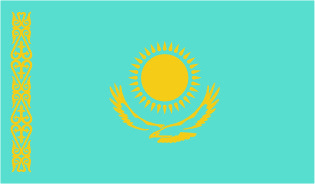
UNODC's work in Pakistan is made possible through funding partnerships and international organizations. These funding partners provide financial support that enables UNODC to implement its programs and initiatives effectively across Pakistan.
Several international donor agencies contribute funds to UNODC Pakistan to support its projects and activities.

AUSTRALIA



















UNODC appreciates the trust that donors place in its work and the generous assistance received to support its Country Programme for Pakistan 2016- 2019. UNODC Pakistan Country Office has been providing substantial support and technical assistance to the Government of Pakistan through the implementation of the following areas:
Sub-programme 1 - Illicit Trafficking and Border Management
Outcome 1: Counter Narcotics Law Enforcement Agencies are more capable and effective at seizures of illicit narcotics trafficking and at decreasing Transnational Organized Crime (TOC) network's activities using Pakistan for their illicit operations
Outcome 2: Comprehensive cooperation developed and implemented to counter organised criminal groups involved in migrant smuggling and transnational human trafficking
Outcome 3: Integrated border management system enhanced through cross-border collaboration
Outcome 4: Investigation of TOC facilitated by technology, including cybercrime improved
Sub-programme 2 - Criminal Justice System and Legal Reforms
Outcome 5: The effectiveness, capacity and responsiveness of LEAs enhanced
Outcome 6: Prosecutorial and Judicial services enhanced for fair, effective and prompt prosecution and adjudication of criminal cases
Outcome 7: Prison, Probation and Parole Systems improved in line with national priorities and international best practices
Outcome 8: Effective anti-corruption strategies and practices developed and implemented by relevant agencies against corrupt practices
Sub-programme 3 - Drug Demand Reduction, Prevention and Treatment
Outcome 9: Knowledge of harmful effects of illicit drugs and misuse of psychotropic medicines increased in collaboration with government stakeholders
Outcome 10: Need-based drug treatment and rehabilitation services integrated into existing national systems (including health, education and social welfare) with emphasis on vulnerable groups women and children
Outcome 11: Increased access to and uptake of HIV prevention, treatment and care services for people who inject drugs in line with global and national policies, strategies and guidelines
Sub-programme 4 - Preventing and Counter Terrorism
Specific objective 1: To enhance investigations processes and the use of forensic evidence by the KPK Police Counter Terrorism Department for the preparation of terrorism cases
Expected result 1: CT investigations processes are improved and result in more thoroughly prepared cases for prosecution that can stand up to judicial scrutiny
Expected result 2: Quality of forensic evidential packages is enhanced and their use in the preparation of CT case is increased
Specific objective 2: To strengthen the capacity of the KPK Prosecution Directorate and Judiciary to effectively prosecute and adjudicate terrorist cases
Expected result 1: Prosecutorial procedures are improved, technical skills of prosecutors enhanced and their early engagement with KPK police on investigations reinforced, thus resulting in more effective prosecution of terrorism cases
Expected result 2: Coordination mechanisms among provincial criminal justice institutions (especially Police, Prosecution and Judiciary) on anti-terrorism cases are improved and a common understanding of forensic and criminal information analysis is established, thus resulting in judicial decisions that more effectively counter terrorism organisations
Expected result 3: Regular and improved analysis and reporting on prosecution processes are produced and feed into the Home Department's review of terrorism cases prosecution and trends
Specific objective 3: To improve provincial and interprovincial coordination on counter terrorism, to strengthen capacity on CT related strategic analysis and to promote greater judicial integrity and human rights compliant judicial processes on terrorism cases
Expected result 1: Structures and procedures for interprovincial, provincial and interagency coordination and cooperation are designed and established, as feasible. As a result, strategic assessments are more regularly established by NACTA and KPK Home Department based on reports on information/management of terrorism cases
Expected result 2: Mechanisms for enhancing the integrity of judicial processes are put in place, including guidelines and monitoring mechanisms to ensure that intelligence evidence is produced and used in full respect of human rights and that victims and witnesses are properly handled and duly protected in investigations and prosecutions of terrorism cases
Expected result 3: Policy analysis on witness protection programmes is developed and made available to national decision maker